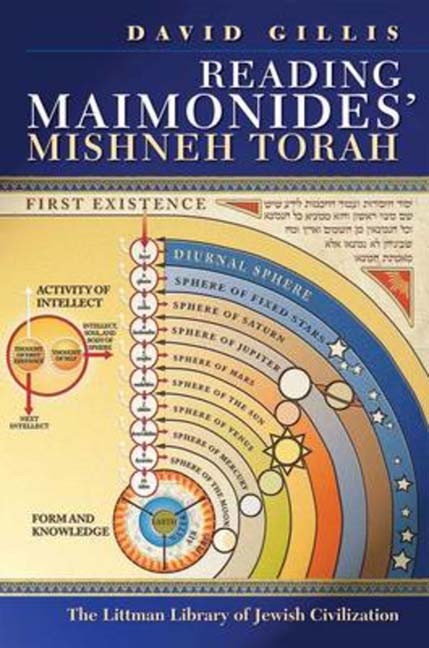Book contents
- Frontmatter
- Dedication
- Acknowledgements
- Contents
- List of Tables
- Note on Transliteration
- Note on Sources and Conventions
- Introduction: A Portrait of the Artist
- 1 In God’s Image
- 2 The ‘Great Thing’ and the ‘Small Thing’: Mishneh Torah as Microcosm
- 3 Emanation
- 4 Return
- 5 From Theory to History, via Midrash: A Commentary on ‘Laws of the Foundations of the Torah’, 6: 9 and 7: 3
- 6 Conclusion: Mishneh Torah as Parable
- Appendix I The Books and Sections of Mishneh Torah
- Appendix II The Philosophical Background
- Glossary
- Bibliography
- Index of Citations
- Index of Subjects
4 - Return
- Frontmatter
- Dedication
- Acknowledgements
- Contents
- List of Tables
- Note on Transliteration
- Note on Sources and Conventions
- Introduction: A Portrait of the Artist
- 1 In God’s Image
- 2 The ‘Great Thing’ and the ‘Small Thing’: Mishneh Torah as Microcosm
- 3 Emanation
- 4 Return
- 5 From Theory to History, via Midrash: A Commentary on ‘Laws of the Foundations of the Torah’, 6: 9 and 7: 3
- 6 Conclusion: Mishneh Torah as Parable
- Appendix I The Books and Sections of Mishneh Torah
- Appendix II The Philosophical Background
- Glossary
- Bibliography
- Index of Citations
- Index of Subjects
Summary
NEOPLATONIC COSMOGONY has two phases: emanation is accompanied by return, as the lower hypostasis turns back yearningly towards the higher one in which it originates. In a Jewish context, ‘return’ evokes the idea of repentance, the root of the Hebrew word for repentance, teshuvah, being shuv, meaning to return. It also evokes the political idea of the coming of the messiah, redemption from exile, and return to Zion, which, as far as Maimonides is concerned, depends on repentance. The implication is that Maimonides’ concept of repentance is linked to the concept of return in Neoplatonic thought.
The turning back of the lower hypostasis is not a vague longing. It is a dual moment of introspection and retrospection, in which the hypostasis forms a thought of itself and a thought of the First Cause. Through this process, which is a constant of its being, it acquires identity. It is in these two interdependent thoughts that it truly consists. In ‘Laws of Repentance’, repentance has the same two components of introspection and retrospection. It is a dual process of self-examination and of reconciliation with God.
In Chapter 1 we saw how the structure of human consciousness presented in ‘Laws of the Foundations of the Torah’ reflects that of the angels, spheres, and stars. The thought of the One or First Cause and the thought of itself in each of the higher entities correspond to the love for God and desire for knowledge of him and the almost simultaneous recoil in self-conscious fear experienced by human beings. In ‘Laws of Repentance’ the movement is reversed: from consciousness of self in the commandment to confess sins with which that section begins, a human being proceeds towards the love of God via knowledge, the theme on which it ends. Looked at this way, repentance can be considered to be the completion of the formation of human consciousness, in the same way as return completes the formation of the Neoplatonic hypostases. This is really a development of the idea put forward in the previous chapter of the self-contained circularity of the Book of Knowledge. And just as the structure of that first book was found to be projected onto Mishneh torah as a whole, I shall argue that, in a similar fashion, the movement of return represented by ‘Laws of Repentance’ is a constant in Mishneh torah, recurring throughout.
- Type
- Chapter
- Information
- Reading Maimonides' Mishneh Torah , pp. 269 - 325Publisher: Liverpool University PressPrint publication year: 2015

